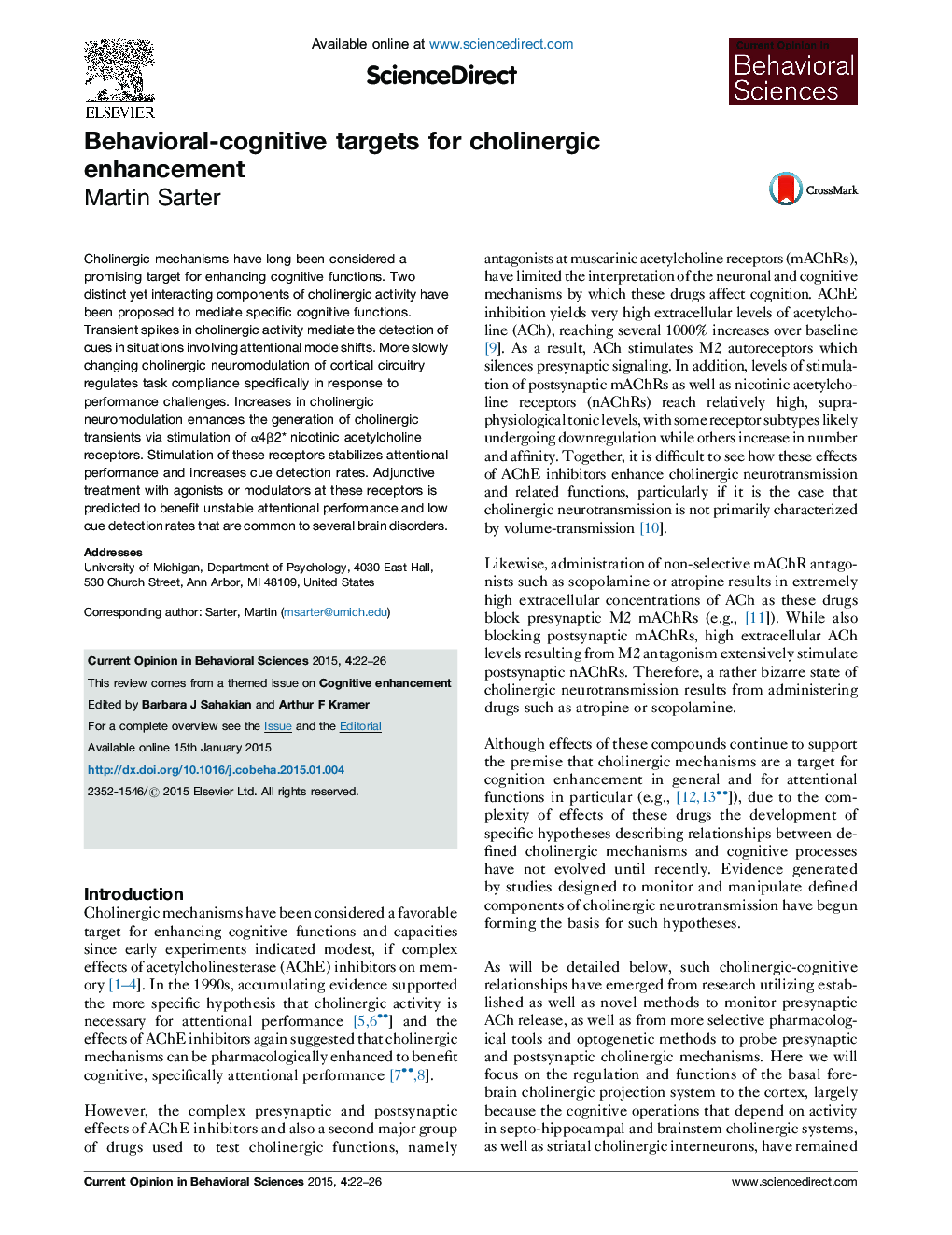| Article ID | Journal | Published Year | Pages | File Type |
|---|---|---|---|---|
| 6260667 | Current Opinion in Behavioral Sciences | 2015 | 5 Pages |
â¢Cholinergic 'double duty': modulation versus transients.â¢Attentional task compliance and cue detection rates depend on cholinergic activity.â¢Stimulation of α4β2* nAChRs reverses poor attentional performance.
Cholinergic mechanisms have long been considered a promising target for enhancing cognitive functions. Two distinct yet interacting components of cholinergic activity have been proposed to mediate specific cognitive functions. Transient spikes in cholinergic activity mediate the detection of cues in situations involving attentional mode shifts. More slowly changing cholinergic neuromodulation of cortical circuitry regulates task compliance specifically in response to performance challenges. Increases in cholinergic neuromodulation enhances the generation of cholinergic transients via stimulation of α4β2* nicotinic acetylcholine receptors. Stimulation of these receptors stabilizes attentional performance and increases cue detection rates. Adjunctive treatment with agonists or modulators at these receptors is predicted to benefit unstable attentional performance and low cue detection rates that are common to several brain disorders.
